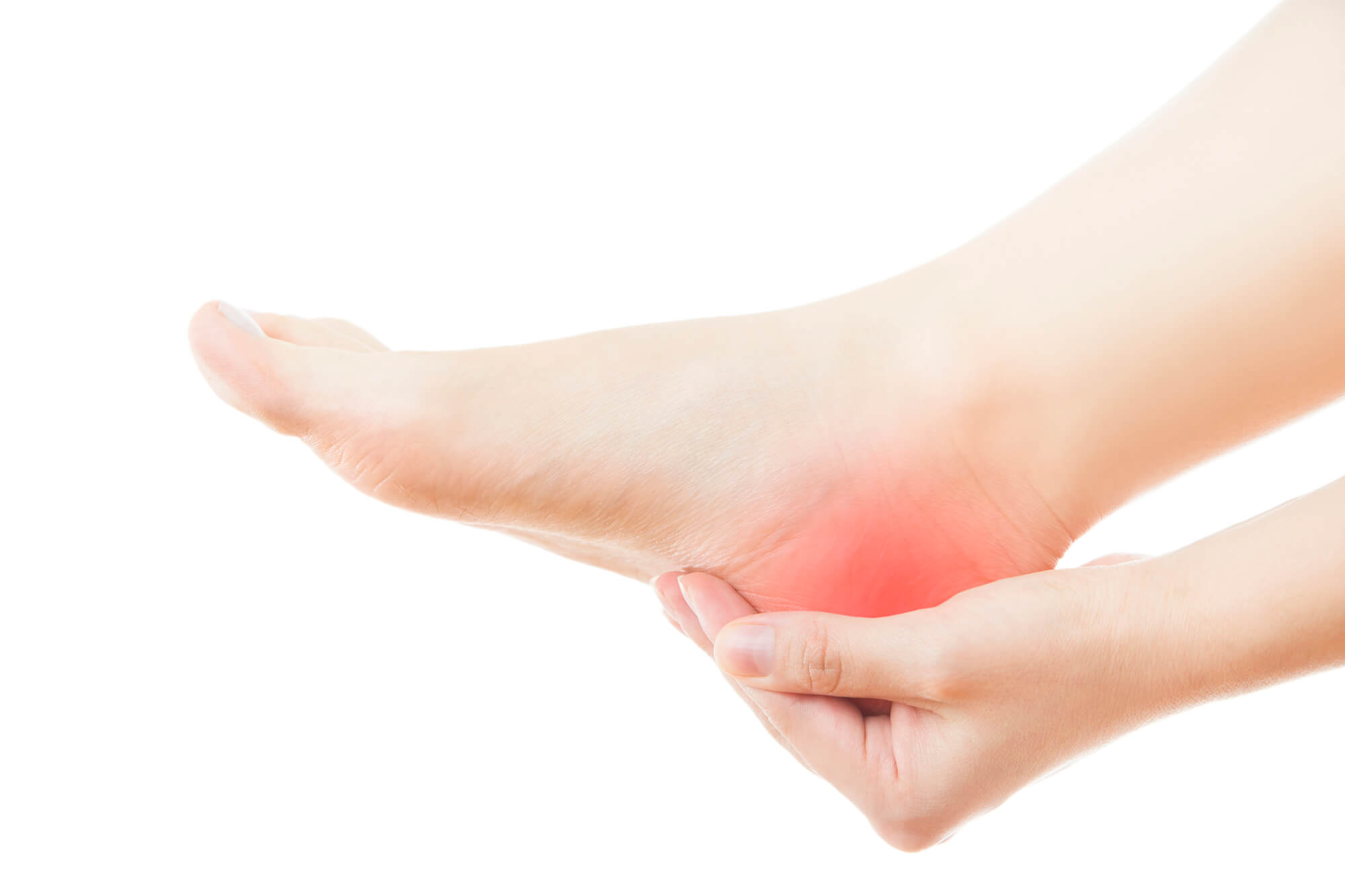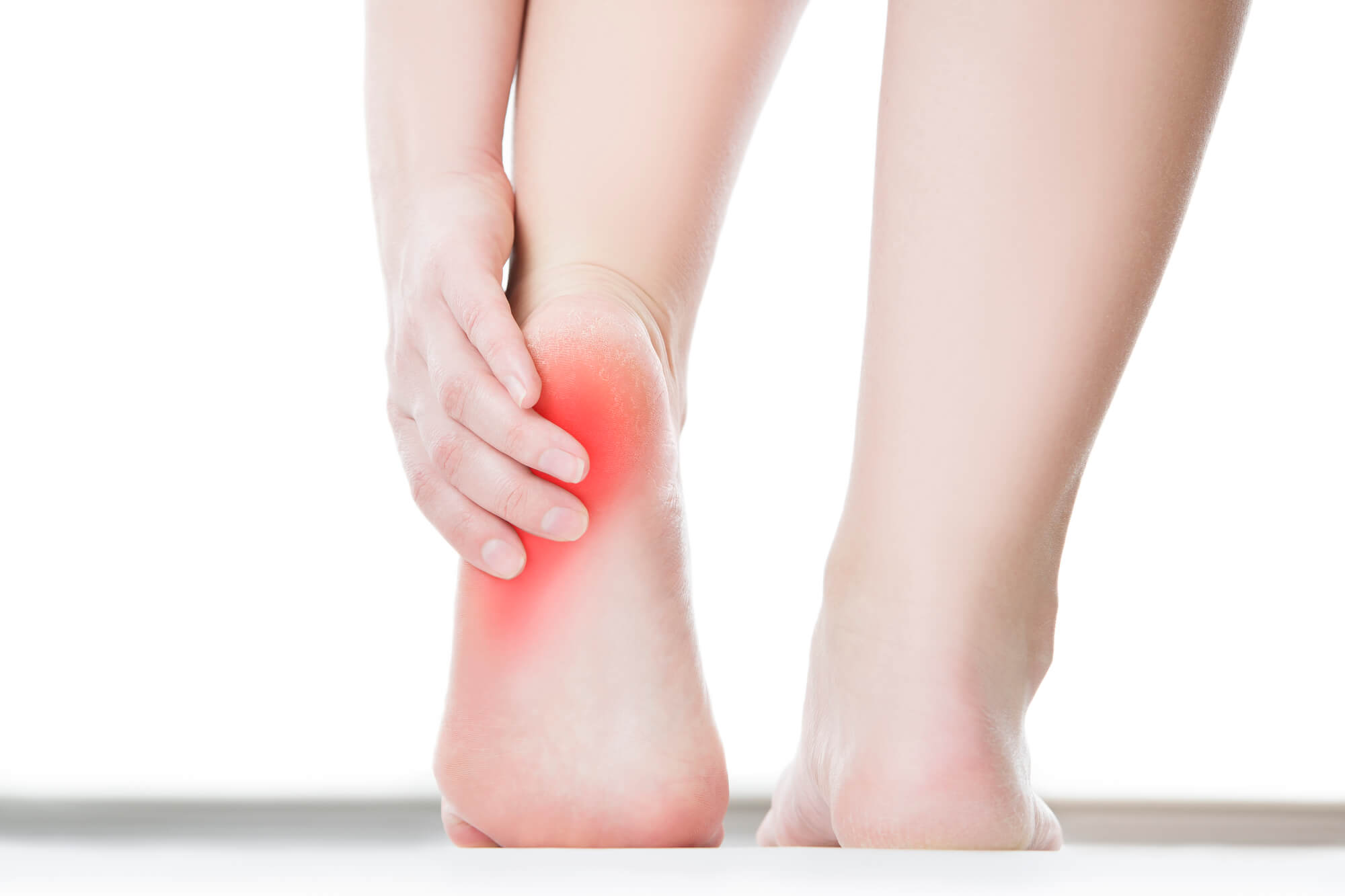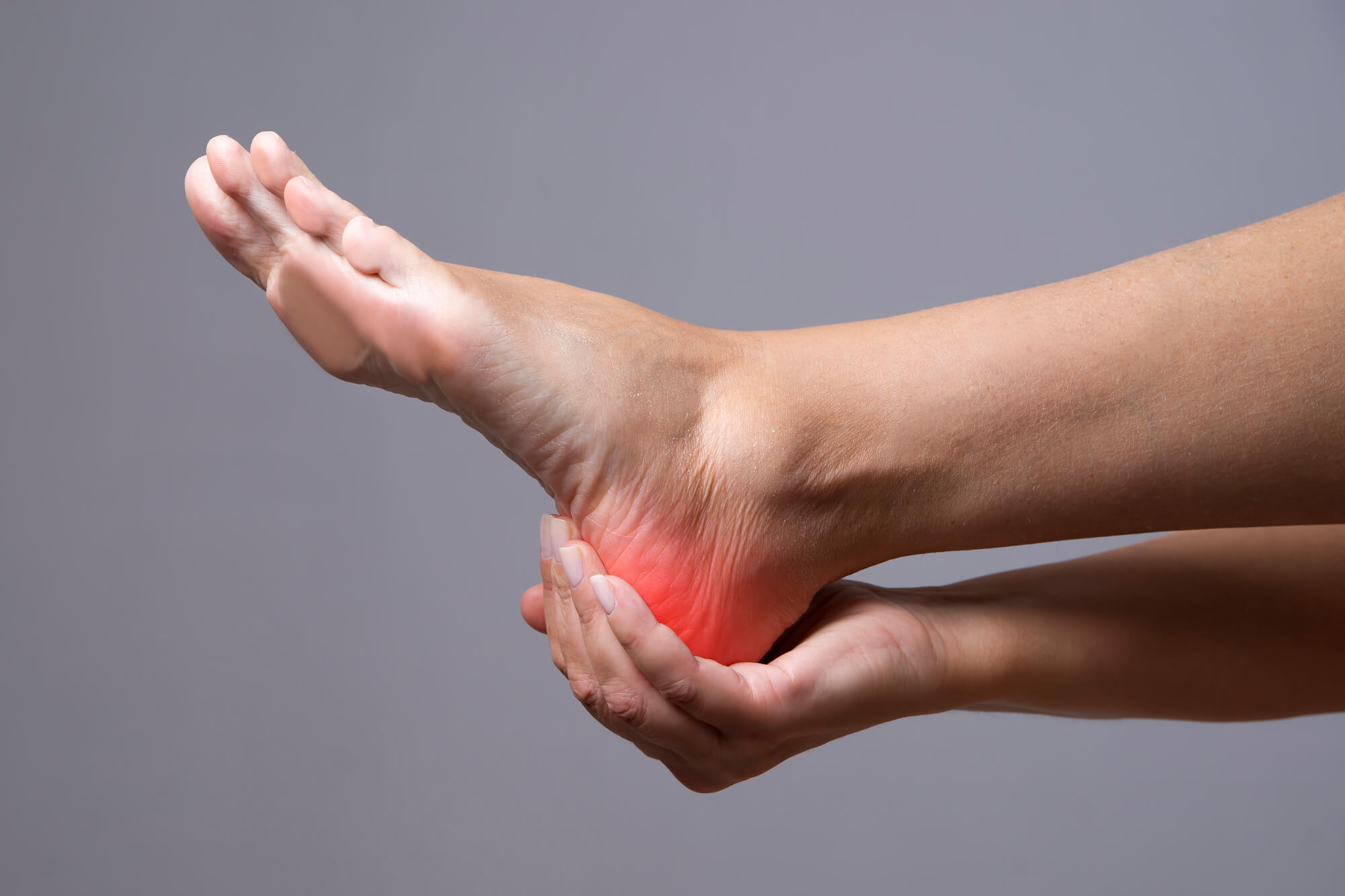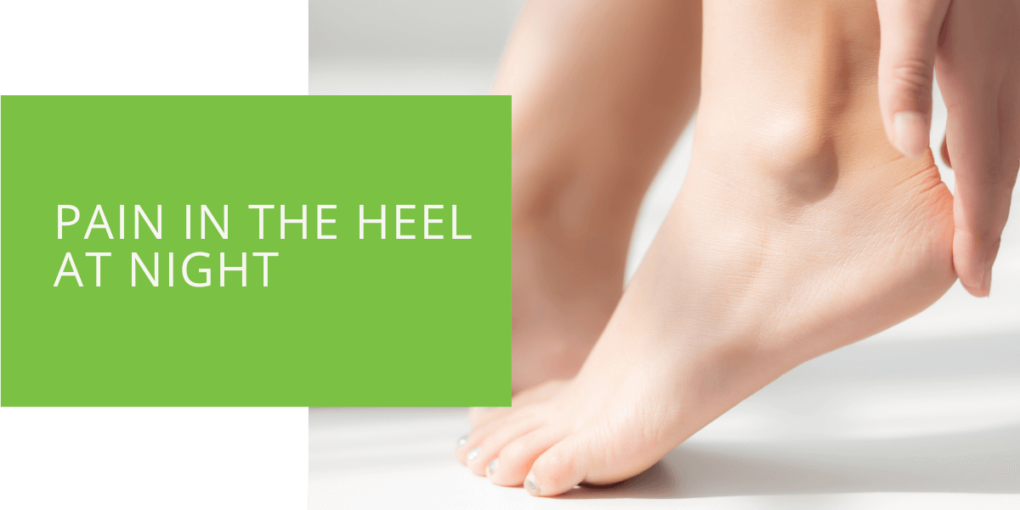Pain in the Heel at Night: Causes & Treatment
If you suffer from heel pain at night, you know how disruptive it can be to your sleep and daily activities. Heel pain can range from mild to severe pain, making it difficult to walk or stand. If left untreated, it can lead to further complications and decreased mobility. This article will discuss the causes of heel pain at night and treatment options available to find relief and prevent further complications.
Introduction to Heel Pain
Heel pain is a common foot issue that various factors can cause. One of the most common causes is plantar fasciitis, inflammation of the plantar fascia – a thick band of tissue that runs along the bottom of the foot. Other causes of heel pain include Achilles tendonitis, stress fractures, heel spurs, and underlying medical conditions such as arthritis or diabetes.
Heel pain can be particularly bothersome at night because it can disrupt sleep and make it difficult to find a comfortable position. In addition, standing and walking on the foot during the day can cause further irritation and inflammation. It is important to address and treat to prevent further complications and maintain mobility.
Causes of Heel Pain at Night
Several common causes of heel pain may be particularly bothersome at night. These include:
Plantar Fasciitis
Plantar fasciitis is the most common cause of heel pain and is caused by inflammation of the plantar fascia – a thick band of tissue that runs along the bottom of the foot. The plantar fascia helps support the arch of the foot and absorb shock during movement. When the plantar fascia becomes strained or overworked, it can be inflamed and cause pain, particularly in the heel area.
Symptoms of plantar fasciitis may include stabbing pain in the heel, pain that is worse in the morning or after long periods of standing or walking, and pain that improves with activity. Plantar fasciitis is often the result of overuse or improper footwear and is more common in people who are overweight, have flat feet, or have a high arch.

Achilles Tendonitis
Achilles tendonitis is another common cause of heel pain and is caused by inflammation of the Achilles tendon – the largest tendon in the body that connects the calf muscle to the heel bone. The Achilles tendon is responsible for helping you lift your heel off the ground when you walk or run. When the tendon becomes strained or overworked, it can be inflamed and cause pain, particularly in the heel area.
Symptoms of Achilles tendonitis may include aching or stiffness in the heel, swelling, and pain worse after activity. Achilles tendonitis is often the result of overuse or improper footwear and is more common in people who participate in high-impact sports or activities.
Stress Fractures
Stress fractures are small cracks in a bone due to overuse or repeated impact. The heel bone (calcaneus) is a common site for stress fractures, particularly in athletes or individuals participating in high-impact sports or activities.
Symptoms of a stress fracture may include pain in the heel that is worse with activity, swelling, and tenderness to the touch. Stress fractures can take several weeks or months to heal and may require rest and reduced activity to allow the bone to heal properly.

Heel Spurs
Heel spurs are bony growths that can form on the heel bone (calcaneus). They are often the result of plantar fasciitis or other underlying conditions that cause strain or irritation on the heel bone. Heel spurs can cause pain and discomfort, particularly when standing or walking.
Symptoms of heel spurs may include pain in the heel, swelling, and tenderness to the touch. Heel spurs can be treated with rest, ice, and over-the-counter pain medications. In severe cases, surgery may be necessary to remove the heel spur.
Other Underlying Medical Conditions
Other underlying medical conditions can cause heel pain at night, such as arthritis and diabetes. Arthritis is a degenerative joint disorder that can cause inflammation and pain in the joints, including the heels. Diabetes can cause nerve damage (neuropathy) that can cause pain and numbness in the feet.
If you are experiencing heel pain at night and have a medical condition such as arthritis or diabetes, it is important to consult a healthcare professional to determine the cause and appropriate treatment options.

Treatment Options
Several treatment options are available for heel pain, depending on the cause and severity of the pain.
Conservative Measures
For mild to moderate pain, conservative measures may be sufficient to find relief. These measures may include:
- Rest and ice: Taking a break from activities that cause strain on the heels and applying ice to the affected area can help reduce inflammation and pain.
- Stretching exercises: Stretching exercises can help improve flexibility and reduce strain on the heels. Your healthcare professional or physical therapist can recommend specific stretches that may be beneficial.
- Orthotic inserts: Custom or over-the-counter orthotic inserts can help support the arch of the foot and reduce strain on the heels. They may be particularly helpful for individuals with flat feet or high arches.
- Physical therapy: Physical therapy can help improve flexibility, strength, and mobility in the feet and ankles. Your healthcare professional or physical therapist can recommend specific exercises and techniques that may be beneficial.
- Medications: Nonsteroidal anti-inflammatory drugs (NSAIDs) such as ibuprofen can help reduce inflammation and pain. Your healthcare professional may recommend other medications depending on the cause of your heel pain.

Surgical Intervention
In rare cases, surgical intervention may be necessary to correct the underlying cause of heel pain. Surgical options may include:
- Plantar fascia release: This surgery involves releasing the plantar fascia to reduce tension and inflammation. It is typically recommended for individuals with severe plantar fasciitis that has not responded to conservative treatment measures.
- Achilles tendon repair: This surgery is used to repair a damaged or torn Achilles tendon. It is typically recommended for individuals with severe Achilles tendonitis or a tear in the tendon.
- Bone spur removal: This surgery involves removing a heel spur to alleviate pain and discomfort. It is typically recommended for individuals with severe heel spurs that have not responded to conservative treatment measures.
It is important to consult with a podiatrist or other healthcare professional to determine the best course of action for your individual case. Your healthcare professional will consider the severity of your pain, the underlying cause of the pain, and any other factors that may impact your treatment options.
Conclusion
Heel pain at night can be a persistent and disruptive issue, but treatment options are available to find relief and prevent further complications. It is important to consult with a healthcare professional, such as a podiatrist or physical therapist, to determine the cause and the best course of action for your case.
Conservative measures, such as rest and ice, stretching exercises, orthotic inserts, physical therapy, and medications, may be sufficient to find relief for mild to moderate pain. In rare cases, surgical intervention may be necessary to correct the underlying cause of heel pain.
You can prevent further complications and maintain mobility by addressing and treating heel pain. Don't let heel pain disrupt your sleep and daily activities – seek treatment and relief.
FAQ
What causes heel pain at night?
Several common causes of heel pain at night include plantar fasciitis, Achilles tendonitis, stress fractures, heel spurs, and underlying medical conditions such as arthritis or diabetes.
What are the symptoms of heel pain?
Symptoms of heel pain may include pain in the heel, swelling, tenderness to the touch, and difficulty standing or walking. The pain may worsen in the morning or after long periods of standing or walking and may improve with activity.
How can I treat heel pain at night?
Treatment options for heel pain at night may include rest and ice, stretching exercises, orthotic inserts, physical therapy, and medications such as nonsteroidal anti-inflammatory drugs (NSAIDs). Surgical intervention may be necessary in severe cases to correct the underlying cause.
What can I do if the ball of my foot hurts?
Pain in the ball of the foot, also known as metatarsalgia, can be caused by various factors such as ill-fitting shoes, overuse, and underlying medical conditions. Treatment options may include rest and ice, stretching exercises, orthotic inserts, and wearing shoes with proper support. If the pain persists or is severe, it is important to consult a healthcare professional.
How can I prevent foot pain?
There are several measures you can take to prevent foot pain, including:
- Wearing shoes that fit properly and provide adequate support
- Avoiding high heels or shoes with narrow toes
- Stretching your feet and ankles regularly
- Taking breaks from activities that cause strain on the feet
- Maintaining a healthy weight to reduce strain on the feet
What is a splint and how can it help with heel pain?
A splint is a device worn on the foot or ankle to support and immobilize the affected area. A splint may be recommended for individuals with heel pain to help reduce strain on the heel and allow it to heal. Splints can be worn at night while sleeping or during the day while participating in activities.
Why does the bottom of my foot hurt?
Pain on the bottom of the foot, also known as the plantar surface, can be caused by various factors such as plantar fasciitis, heel spurs, stress fractures, or underlying medical conditions. It is important to consult with a healthcare professional to determine the cause of the pain and appropriate treatment options.
Could a pinched nerve cause my heel pain?
While various factors can cause heel pain, a pinched nerve is not typically a cause. A pinched nerve typically causes pain, numbness, or tingling in the affected area and may be accompanied by weakness in the affected muscles. If you are experiencing these symptoms, it is important to consult a healthcare professional to determine the cause and appropriate treatment options.

